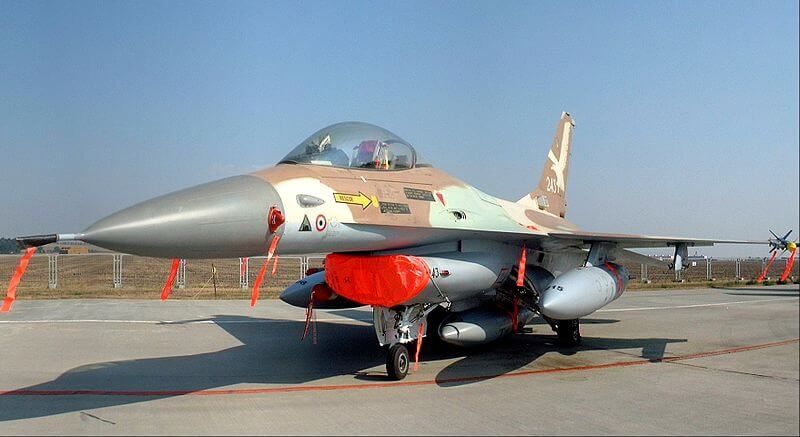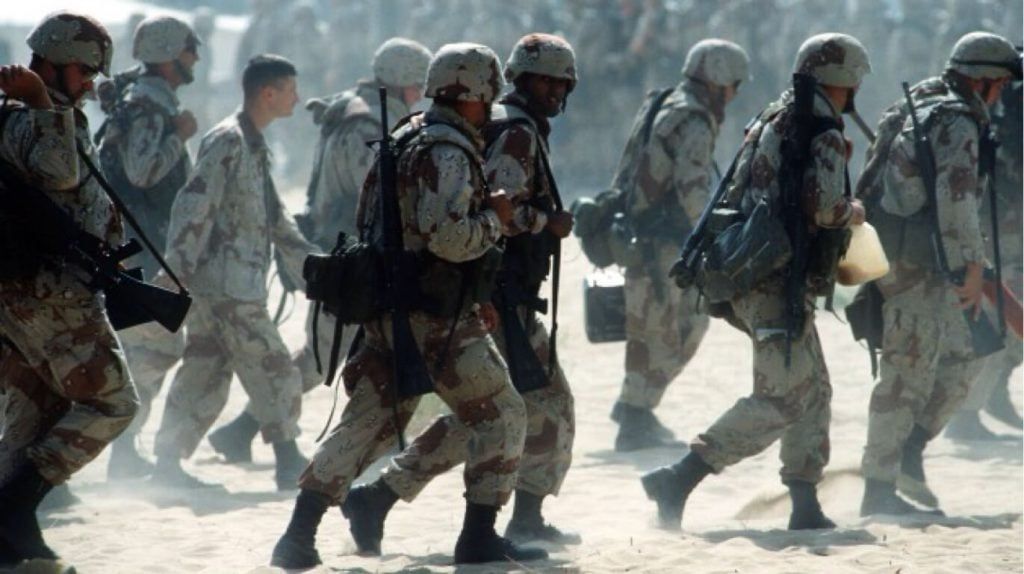Imagine this: It’s August 1990. Saddam Hussein, dictator of Iraq, begins to act on his plan for world domination by invading Kuwait. Billions around the world must sit silently and watch as Hussein takes over country after country, because they know that Hussein will unleash his nuclear weapons against any nation that tries to stop him.
Thankfully, this nightmare scenario never materialized.
The United States was able to lead an international coalition to push Iraq’s armed forces out of Kuwait in the 1991 Persian Gulf War, and Hussein’s expansionism came to a screeching halt.
But this dictator was only able to be prevented from carrying out his maniacal plans because of one country: Israel.
Join the fight for Israel’s fair coverage in the news
Timeline: from diplomacy to air strike
Iraq had established a nuclear program during the 1960s, and by the mid-1970s looked to expand it through the acquisition of a nuclear reactor. To that end, Iraq purchased a nuclear reactor from France in 1976. Located 17 kilometers southeast of the Iraqi capital Baghdad, the Osirak reactor was immediately recognized by Israeli officials to constitute a serious threat to Israel and the world.
A nuclear reactor in the hands of a dictator like Saddam Hussein presented an immediate and grave dilemma. Israeli Foreign Minister Moshe Dayan initiated diplomatic efforts with France but failed to receive assurances that the reactor program would be halted. Additionally, Israel failed to convince the French government to stop providing aid for the Iraqi nuclear program.
Once diplomatic efforts failed, Israeli Prime Minister Menachem Begin concluded that Israel would have to take military action. In 1979, Israeli secret agents planted a bomb that destroyed the reactor’s first set of core structures as they were being prepared to be shipped to Iraq. Israel engaged in additional covert efforts to try to set the Iraqi nuclear program back.
Related Reading: The Elite of the Elite – IDF Special Forces
But in October 1980, Israeli intelligence reported that by June 1981 the reactors would be fully operational, after which nuclear weapons could be developed. While the earliest estimates for Iraq being able to obtain a nuclear bomb were a year or two later, Begin was concerned that delaying the attack until the reactor was fully operational could lead to lethal doses of radioactive contamination reaching Baghdad, killing innocent civilians.
Begin thus ordered the Israel Air Force to bomb the reactor on June 7, 1981. Israel chose to bomb on a Sunday, a day off for foreign workers and consultants, to reduce the number of casualties. The Israeli air strike of Osirak became known as Operation Opera.
Fourteen Israeli fighter planes flew 1,600 kilometers to reach their target. While flying through Jordanian airspace, the pilots spoke in Saudi-accented Arabic telling the Jordanian air controllers that they were Saudis on a routine patrol that had veered off course. Then, when they flew through Saudi airspace, the pilots pretended to be Jordanians.

Once they reached Iraq, the fighter planes dropped 16 bombs on the reactor in two minutes, evaded anti-aircraft fire, and safely returned to Israel.
Though Iraq vowed to rebuild the reactor, France ultimately pulled out of the project in 1984 and the facility was never repaired.
Israel’s “clear violation” of international conduct
The United Nations passed two resolutions rebuking Israel for the attack. UN Security Council Resolution 487, passed on June 19, 1981, condemned the attack as a “clear violation of the Charter of the United Nations and the norms of international conduct.” The United States voted in favor of the resolution. On November 13, 1981 the UN General Assembly passed Resolution 36/27, criticizing Israel for the “premeditated and unprecedented act of aggression,” and demanded that Israel compensate Iraq for the damage and loss of life caused by the attacks.
Both resolutions called on Israel to refrain from attacks of this kind in the future. US President Ronald Reagan wrote in his diary that he believed the Israeli attack would lead to “Armageddon” and US ambassador to the UN Jean Kirkpatrick compared Israel’s attack to the Soviet invasion of Afghanistan.
Related Reading: Israel and the Innate Bias of the UN Security Council
The New York Times called the attack “an act of inexcusable and short-sighted aggression.” The Los Angeles Times went even further, calling it “state sponsored terrorism.”
Many of Israel’s critics pointed to the fact that Iraq had signed the Nuclear Non-Proliferation Treaty that put the reactor under the watch of the International Atomic Energy Agency (IAEA), which would prevent the country from using the reactor to develop nuclear weapons.
US: Bombing Osirak was a ‘good thing’
But Roger Richter, a former IAEA inspector, told the United States Senate Foreign Relations Committee that the most sensitive facilities in the reactor were not subject to any safeguards. While Iraq and France insisted that the reactor was constructed for peaceful purposes, SRATFOR, a private American intelligence agency, reported that prior to Israel’s attack the Osirak reactor “was believed to be on the verge of producing plutonium for a weapons program.”

Quite remarkably, while Israel’s attack left the reactor crippled but still standing, coalition forces led by the United States Air Force completely destroyed the reactor during the Persian Gulf War in 1991. Following that war, US Secretary of Defense Dick Cheney thanked the Israeli pilot who commanded the Israeli mission for “the outstanding job” that Israel’s air force did in 1981.
US President Bill Clinton said this at the 2005 World Economic Forum in Davos regarding the Israeli attack on Iraq’s nuclear reactor: “Everybody talks about what the Israelis did at Osirak in 1981, which I think, in retrospect, was a really good thing. You know, it kept Saddam from developing nuclear power.”
The entire episode – from the difficult decision to bomb the Osirak reactor, to the international condemnation, to the gratitude a decade later – has reinforced Israel’s doctrine to not be held back by likely worldwide condemnation and to act, even at great risk, when it identifies real and present danger to its people and its survival.
Enjoyed reading this article? Follow the HonestReporting page on Facebook to read more articles debunking news bias and smears, as well as others explaining Israel’s history, politics, and international affairs. Click here to learn more!

